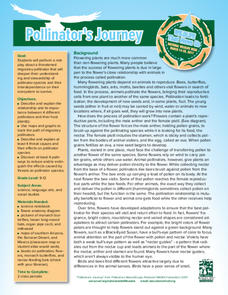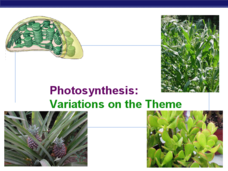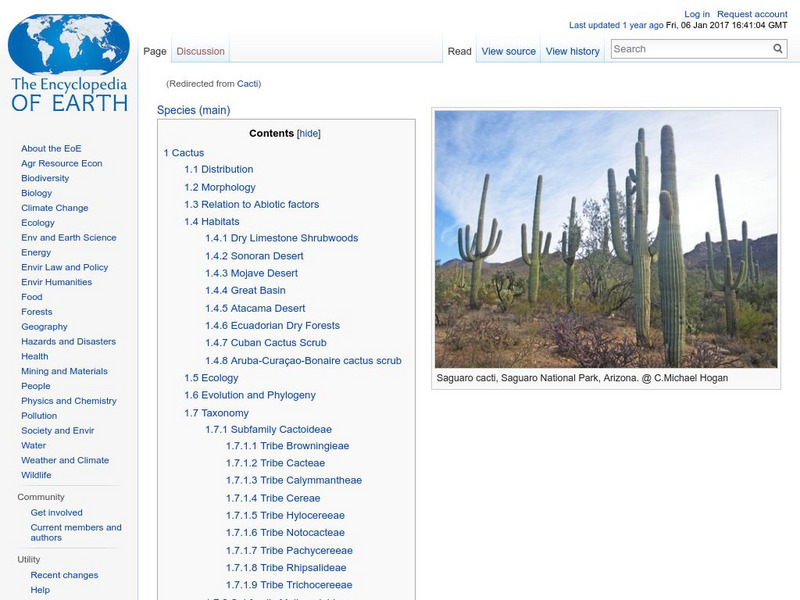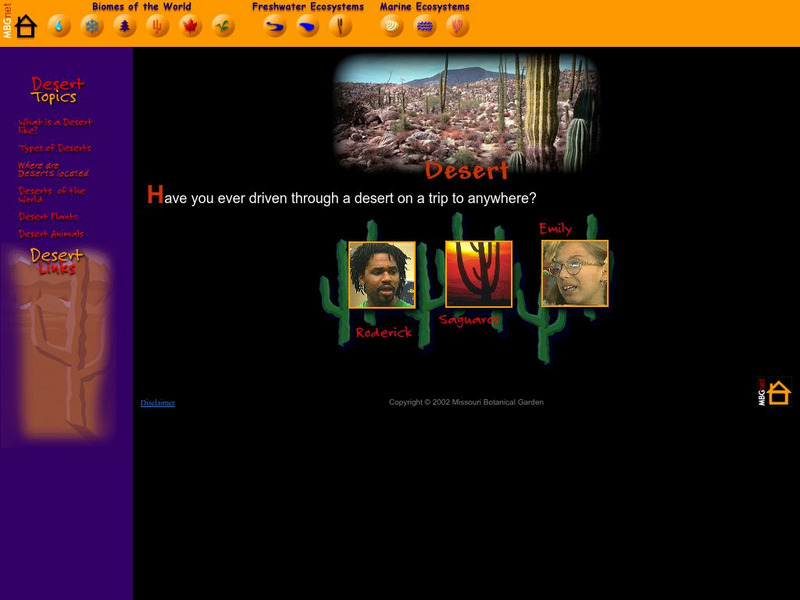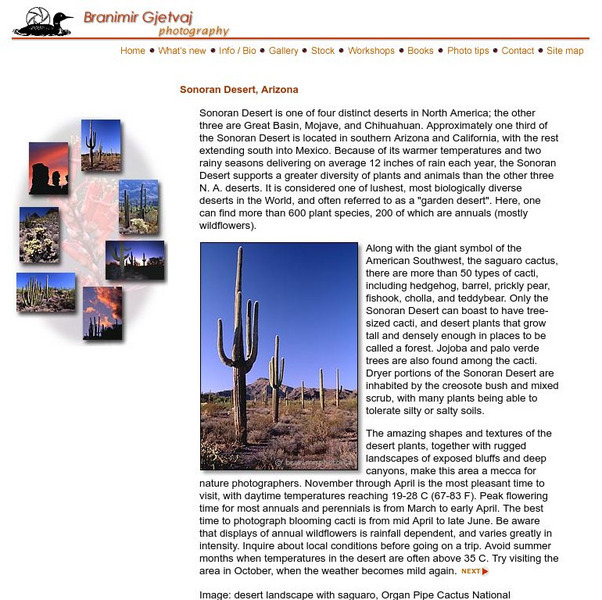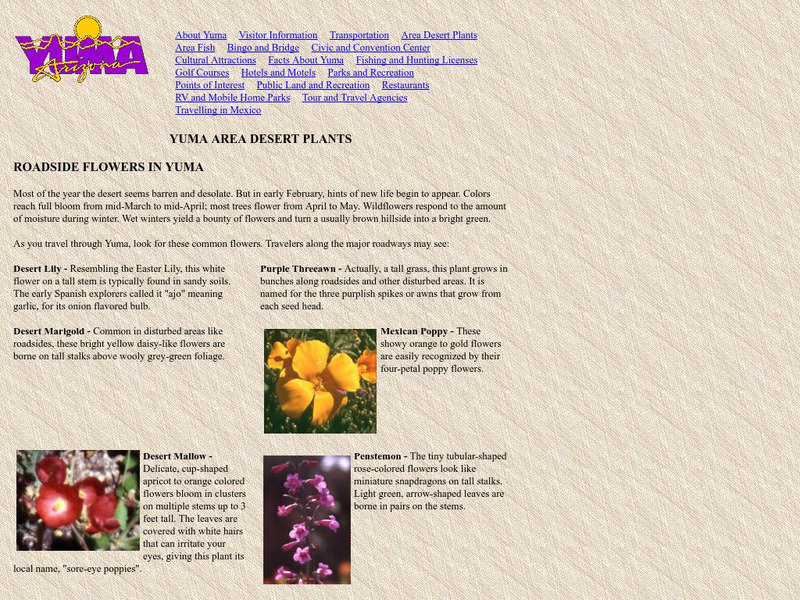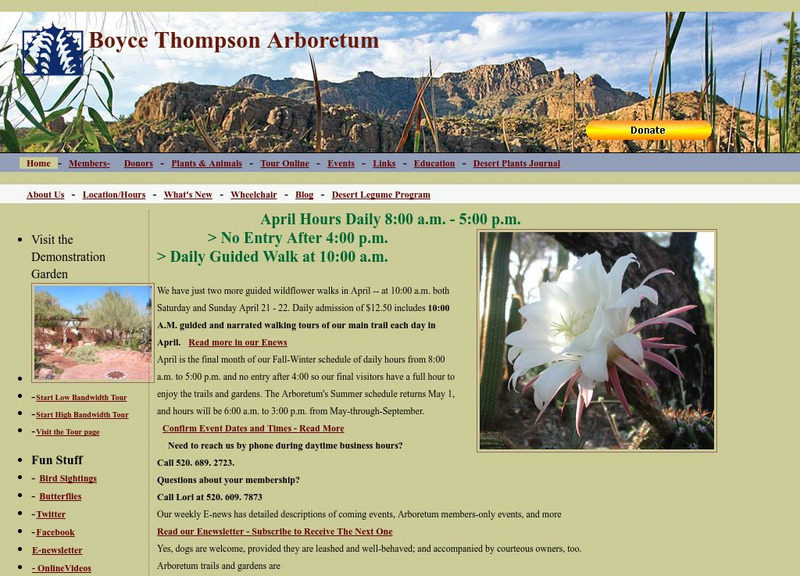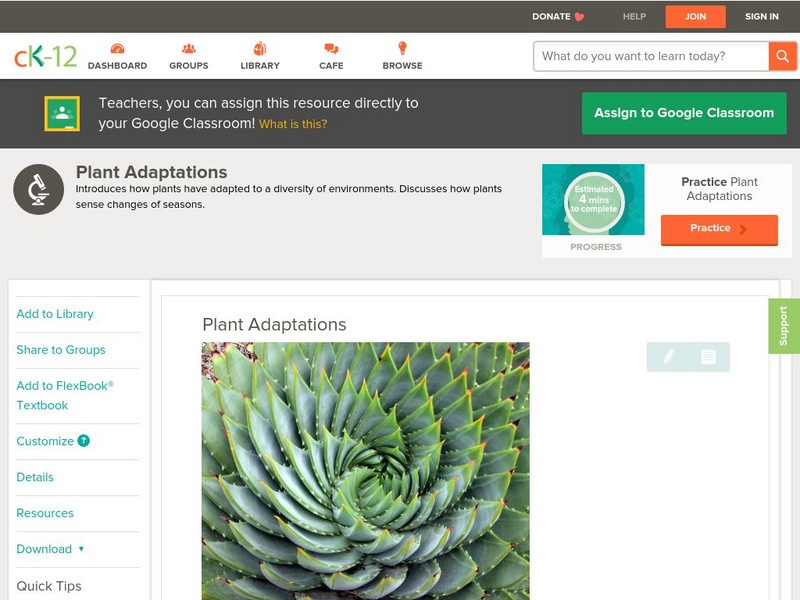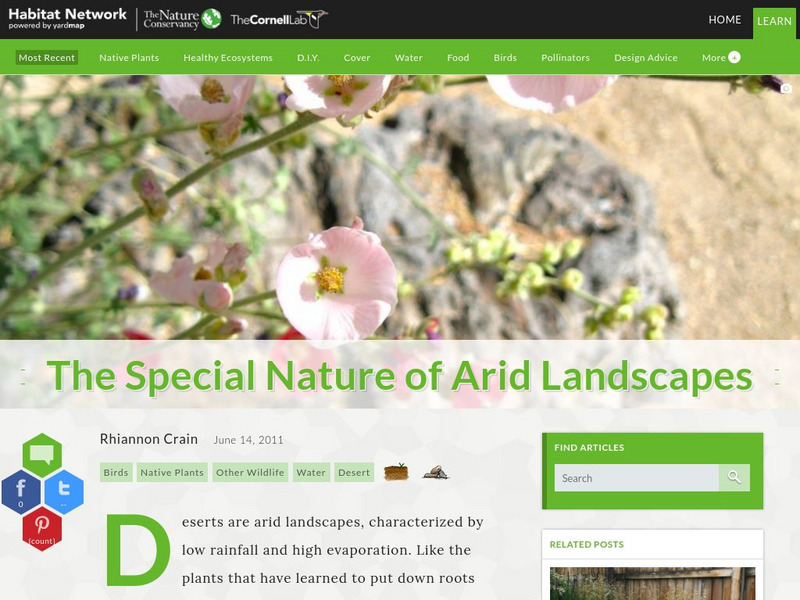Curated OER
Desert Ecosystems
Introduce your class to the desert ecosystems using this colorful and informative presentation. This resource discusses desert plants and animals. It also identifies the deserts in the Southwest region of the United States. There are...
National Wildlife Federation
Pollinator's Journey: Grades 9-12
Gain a deeper understanding of migratory pollinators. After studying about pollinators and their effects on flowering plants, learners hear a story about the migration of Monarch butterflies and bats in the Sonoma Desert. Small groups...
National Wildlife Federation
Pollinator's Journey: Grades 5-8
Re-enact the flight of the pollinator. Pupils learn about the roles of butterflies, bats, and other pollinators in plant reproduction. The class acts out the migratory flight of Monarch butterflies and bats from the Sonoran Desert to...
National Wildlife Federation
Pollinator's Journey: Grades K-4
What's it like to migrate as a pollinator? Teachers provide direct instruction about the roles of pollinators such as butterflies on plants along with the threats they encounter. The class then acts out a story of the migration of bats...
Curated OER
Deserts
What is it like in the desert? Inform your class on what makes a desert, the type of climate they'll find there, and the interesting plant and animals that live in the desert environment. This is a text-rich presentation that will...
Curated OER
Plant Diversity and Distribution
Students construct a defined plot on school grounds and observed patterns in plant life. They count trees, shrubs, cacti and record on a data sheet. They compare data and generate a plant diversity overlook for their school.
Curated OER
Photosynthesis: Variations on the Theme
Leaf structure and its specializations for photo-respiration are detailed here. Slides provide information about Photo-respiration biochemistry and its impact. A class learning about classic respiration will appreciate the...
Curated OER
Cactus Wheel
Students explore plant biology by conducting field experiments outside of class. In this desert plant lesson, students discuss how cacti thrive in such dry climates and how dense their populations are. Students utilize action cards, a...
Curated OER
Word and Picture Matching: Cut and Paste
In this desert plants worksheet, students cut out 6 pictures of common plants and trees. Students only paste those pictures of plants that are found in the desert on the page that says "desert plants".
Curated OER
What Lives in the Deserts?
In this desert worksheet, students will investigate the factors that make a desert by completing four different desert fact questions.
Curated OER
Word Search: Common Desert Plants
In this science worksheet, students locate the names of 15 desert plants in a word search puzzle. The word bank has a realistic, detailed color picture for each plant name.
Curated OER
Desert Plants
In this desert worksheet, students research two plants from the desert to find special characteristics that allow them to live in such a dry climate. Students write a paragraph about each plant and draw a picture.
Encyclopedia of Earth
Encyclopedia of Earth: Cactus
Describes the physical features of different cacti, the variety of habitats where they can live, their distribution, evolution, taxonomy, and conservation status. (Published: January 10, 2011)
Encyclopedia of Earth
Encyclopedia of Earth: Adaptations of Desert Plants
The ways in which plants have adapted through evolution in order to survive in a desert environment are described in this article. Getting water and retaining water are key to their survival, including protecting themselves from animals...
Unite for Literacy
Unite for Literacy: Plants and Food: Great Green Giants
A picture book about a giant cactus called the saguaro. Includes audio narration in nine additional languages with text in English.
Missouri Botanical Garden
Missouri Botanical Garden: Plants of the Desert
The Evergreen Project reveals such desert plants as the dragon tree, the saguaro cactus, the prickly pear, the desert spoon, the aloe plant, and the like. Illustrated.
Other
Branimir Gjetvaj: Sonoran Desert, Arizona
This site has several pictures and links on the flora of the Sonoran Desert in Arizona.
Other
Greatest Places: Namib
Explore the Namib Desert and learn about its location, the Skeleton Coast, mirages, and general information about this home to the highest sand dunes in the world.
Other
Bureau of Land Management: Yuma Area Desert Plants
Graphics and descriptions of the desert lily, desert marigold, desert mallow, purple threewa, Mexican poppy, trees and shrubs in the Yum, Arizona region.
University of Arizona
University of Arizona: Boyce Thompson Arboretum
This Arizona-based state park features current information about its wildlife, wildflowers, plants and trees, gardens, and the like. Illustrated.
Curated OER
National Park Service: Arches National Park: Plants
Information about the cacti, grasses, lichens, trees, shrubs, and wildflowers that grow in Arches National Park, located in Moab, Utah. Focus is placed on the adaptations of these plants that allow survival in a desert habitat.
CK-12 Foundation
Ck 12: Biology: Plant Adaptations
[Free Registration/Login may be required to access all resource tools.] An overview of how plants have adapated to their environments.
Cornell Lab of Ornithology
Habitat Network: The Special Nature of Arid Landscapes
Find out how to make the most of a desert environment in order to foster a wide array of species diversity.
Other
Arizona Sonora Desert Museum: How Plants Cope With the Desert Climate
Museum provides an article on how plants can cope with desert climate due to their three adaptive strategies: succulence, drought tolerance and drought avoidance.



